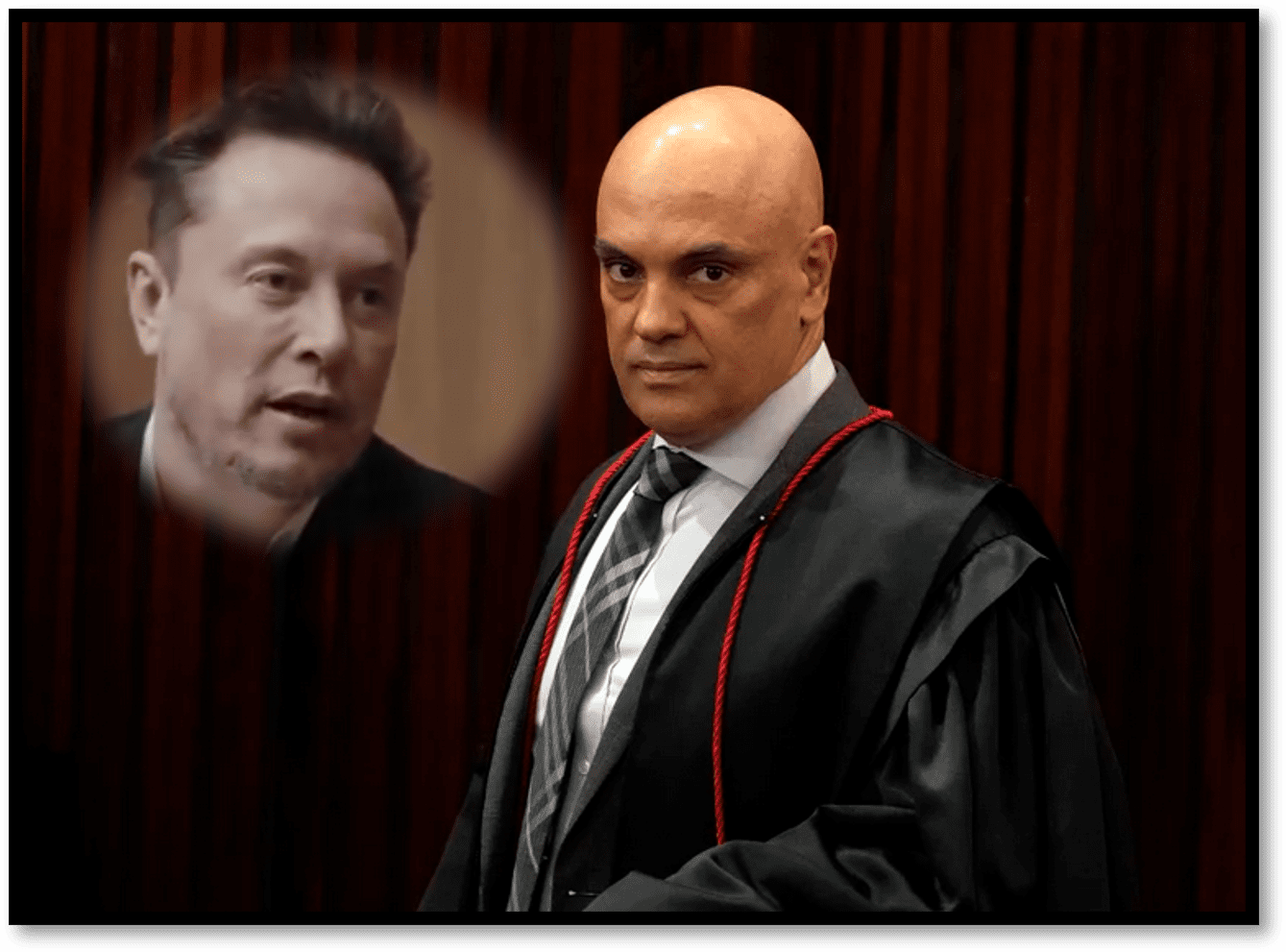Musk wages another private war. Brazilian Supreme Court Justice Alexandre de Moraes has suspended Elon Musk’s social media platform X in Brazil. This decision follows X’s failure to appoint a legal representative in the country, a mandatory requirement under Brazilian law to ensure foreign companies can be legally notified. Musk has strongly criticized Justice de Moraes, calling him a “dictator” and a “criminal” masquerading as a judge.”
Key Points:
- Suspension of X in Brazil: X (formerly Twitter), owned by Elon Musk, has been suspended in Brazil by order of Supreme Court Justice Alexandre de Moraes for failing to appoint a legal representative, which is a requirement under Brazilian law.
- Escalating Legal Conflict: The dispute between Musk and Justice de Moraes centers around issues of free speech, misinformation, and far-right content on the platform. De Moraes has been targeting disinformation, especially from Bolsonaro supporters, while Musk accuses him of censorship.
- Asset Freeze on Starlink: Due to X’s inability to pay fines imposed by the Brazilian court, Justice de Moraes has also ordered the freezing of assets belonging to Starlink, another Musk-owned company, viewing both entities as part of the same economic group.
- Musk’s Reaction and Accusations: Musk has strongly criticized Justice de Moraes, calling him a “dictator and a fraud” and accusing him of trying to destroy democracy in Brazil. Musk also labeled de Moraes as a “criminal” masquerading as a judge.”
- Impact on X Users and Platform Compliance: The suspension of X affects around 40 million users in Brazil. The suspension will last until X appoints a legal representative and pays the fines. This situation underscores the importance for international companies to comply with local regulations.
- Actionable Insights for Platform Operators: The case highlights the need for social media and digital platform operators to ensure legal compliance in international markets to avoid severe penalties such as platform suspensions and asset freezes. Balancing regulatory compliance with the principles of free speech is increasingly crucial in the global digital landscape.
Short Narrative
Justice de Moraes has been active in combating disinformation, particularly from supporters of former President Jair Bolsonaro, accused of undermining democracy with false information. Musk, claiming to be a “free speech absolutist,” has criticized de Moraes’ actions as censorship and called him a “dictator and a fraud” on X.
The suspension of X remains until the platform complies with Brazilian legal demands, including appointing a legal representative and settling fines for non-compliance. In a further move, de Moraes has frozen the assets of Starlink, another Musk-owned company, due to X’s insufficient funds to cover these fines, citing both entities as part of the same economic group.
Actionable Insight:
This X situation in Brazil again shows the challenge of operating internet platforms globally with local jurisdictions. While X was suspended in Brazil due to non-compliance with legal requirements, such as appointing a local representative, the Telegram CEO, Pavel Durov, faces charges related to allowing criminal activities on the platform.
The Brazilian case demonstrates the severe consequences of non-compliance, including platform suspension and asset freezes, which can severely disrupt operations and damage a company’s reputation. Moreover, the freezing of Starlink’s assets demonstrates the potential for cross-company financial repercussions within the same economic group. This action underscores the need for clear corporate structures and separation of assets to mitigate risks across affiliated entities.
As misinformation and content regulation become hot topics globally, companies must strike a delicate balance between adhering to local laws and maintaining their principles of free speech. Legal compliance is essential to avoid operational risks and maintain trust in diverse markets.






